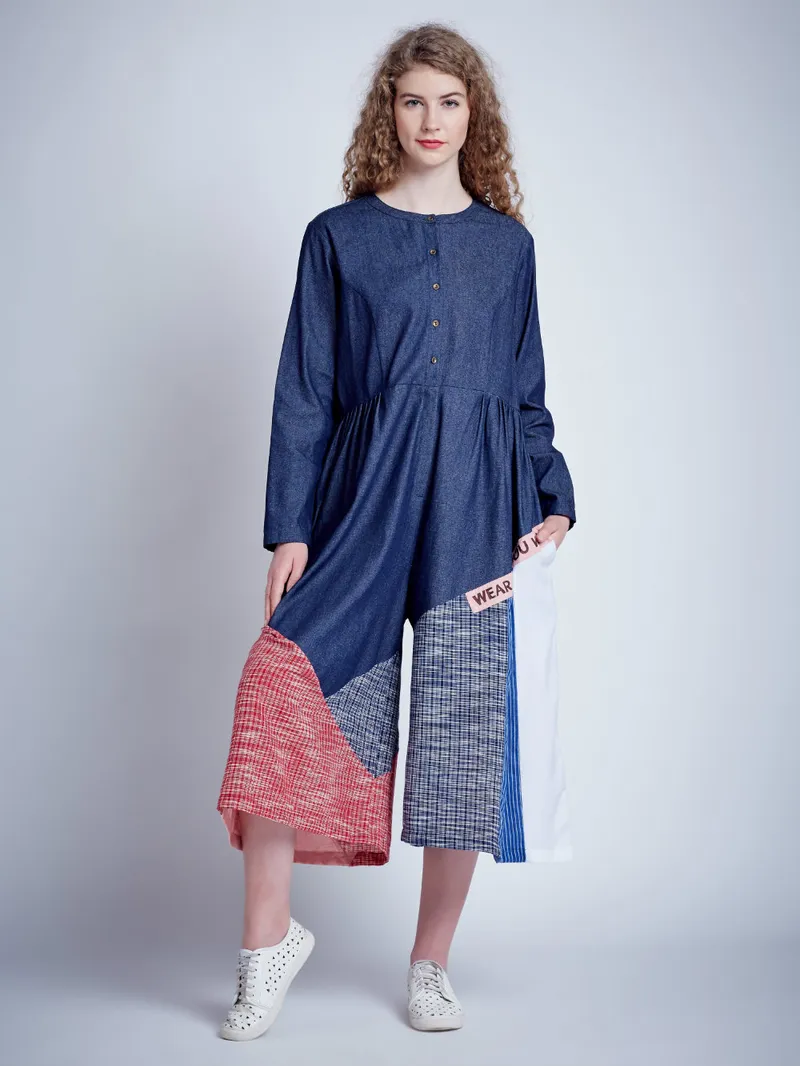Say hello to fashion, bye-bye to textile waste with upcycled label Doodlage
Keen to reduce fabric waste and the environmental impact of her label, Kriti Tula has designed Doodlage as a hip, ethical fashion brand.

No two doodles are the same, and chances are no two Doodlage pieces are the same.
With the conversation on social media revolving around climate change and the impact our lifestyles have on it, it’s not surprising that youngsters are coming up with savvy solutions.
Many millennials have come up with their own line of upcycled/recycled goods that are good for the environment.
The environment-conscious band includes Delhi-based Kriti Tula. Kriti launched Doodlage, a fashion and lifestyle label that sells upcycled products, in 2012. She was only 23 years old then and had taken her first step towards entrepreneurship after she witnessed the mammoth piles of textile waste and rejects during her internship at an export house.
Since then, Kriti and Doodlage have popularised the idea of upcycling to create chic fashion.
What is Doodlage about?

Realising that garment industries were a major contributor to the fabric waste that chokes landfills, Kriti decided to upcyle this waste.
“We collect these waste from large fabric manufacturers to create fashion products,” Kriti explains.
She acknowledges that despite their good intentions, Doodlage also ends up generating waste. But unlike other brands, this waste doesn’t go to the dump yard.
“The waste we create is shredded to create new fabric that goes into home furnishings and bags,” she says.
Explaining the name, she says art is easy to replicate but doodles are not.
“Every doodle is one of a kind. Similarly every piece at Doodlage is one of a kind,” she adds.
This label is targeted at anyone between 18 and 45 years. The idea is to make ethical fashion readily available for anyone.
Working on conscious fashion

Kriti graduated in fashion design from Pearl Academy in New Delhi. She started doing internships with various export houses from her second year onwards, which gave her a window into how the fashion industry works.
“They work under immense pressure to meet the demand for products and there is very little understanding of waste or what to do with it. As a result, a lot of good fabric goes into landfills. Around this time, I also read about various unethical practices around the globe that contribute to waste creation. I knew from early on that if I create something or start my own brand, it would be about creating garments more consciously. It would be a fashion and lifestyle brand that addresses the flaws in mass production of garments,” Kriti says.
She then went on to study design management at London School of Fashion with a scholarship.
“The idea of conscious fashion was sparked there. By the time I got back, Doodlage was already an idea,” she recalls.
Even though it was a novel idea back then, her brand received a very warm welcome in the market.
Kriti says the label earned acceptance in no time and the market has been more than encouraging.
“A well-known store, Bombay Electric, displayed our first collection which was completely upcycled. That was a huge deal and encouraged us to do more and better. Events like Lakme Fashion Week and Fashion Revolution have also been very encouraging. We are present in 40 stores across the country now,” she says.
Sustainability: a lifestyle choice

That’s certainly a big deal for a brand which began its journey at a time when “ethical fashion” was not heard of.
Kriti believes their success came primarily because the products were good.
“When we started we were sure that nobody was going to buy our product if it was not good. So the primary criterion was to create a good product and then create values around it as a feel-good advantage,” she says.
Ethical fashion has now grown now, and how! And Doodlage has also grown with it.
As far as the 28-year-old designer is concerned, “sustainability” is not limited to the label she has created. Kriti lives the idea, too.
“Fast-fashion consumerism is a fairly new concept in India,” she says. “We were given hand-me-downs while growing up. We always did something with useless clothing; used loose or tight clothing by altering them. Growing up this way, I’ve always lived consciously. Healthy eating, exercising, being mindful of the health of the environment - these are the things that I live by,” Kriti ends.







